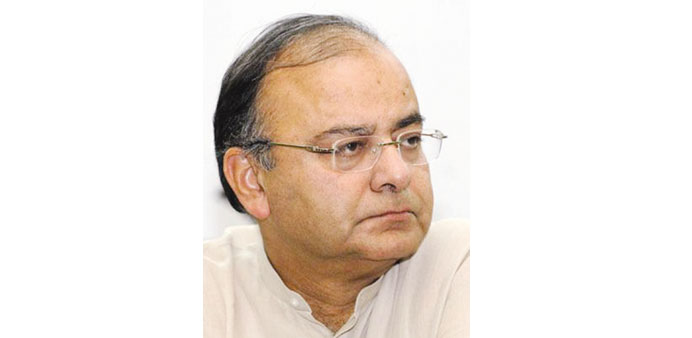IANS/Washington
Even as court battles continue over tax demand on foreign firms on deals entered in India before the change in laws, Finance Minister Arun Jaitley has sought to clarify his stand of not pursuing retrospective taxes, but said some cases were different.
Speaking at the Peterson Institute for International Economics here, the finance minister said the government had taken the position that in cases where the courts had given their verdict in favour of the companies, no appeal will be filed despite such an option existing.
“There are, however, two categories of cases still pending — some under investment treaties are in arbitration, while some others where notices were issued earlier but the assessments are being completed now... they fall under one category and we are waiting for the judicial process (to get over).”
At the same time, alluding to the recent capital tax gains demand of Rs400bn from foreign funds, which again raised concern, Jaitley said these entities had, indeed, asked for a waiver stating that it was an unfair tax. But they lost the case in courts.
“So, for future I have abolished it (minimum alternate tax on capital gains) from April 1, 2015,” he said, adding: “But their expectation that having lost the case the state must now intervene, that looks a little difficult from my point of view.”
The finance minister, nevertheless, said such funds had the option to take their appeal to the courts. He also emphasised that Prime Minister Narendra Modi’s government had stuck to its promise of not sending a single notice for a retrospective tax demand.
“Some of these contentious cases, in all honesty, have not given me a single rupee of revenue so far. They’ve only brought a bad name to me. And these are essentially because of old legacy issues,” Jaitley said.
Even as the finance minister was speaking, Cairn India was fighting a legal battle with the tax authorities in India, with its counsel, citing various judgments, telling the Delhi High Court that the fresh tax demand of Rs204.95bn imposed on it was uncalled for.
The matter pertained to the purchase of India assets of Britain-based Cairn by the Vedanta Group in 2007. The Indian entity said tax matters must be raised within a reasonable time and that the present late demand was “unreasonable and atrocious”.
Similarly, the government also decided to pursue a capital tax gains demand of Rs400bn from foreign funds, a matter which the finance minister touched upon in the speech that was circulated by the Indian embassy here -- the one from which he deviated.
“I’m acutely aware that there are concerns about retrospective taxation, tax harassment, the unpredictability and arbitrariness in our tax administration especially relating to transfer pricing,” he said.
“Let me emphasise we are absolutely committed to a transparent and predictable tax regime. There will be no retrospective actions. We will see taxpayers as partners not as potential hostages,” he said at the talk on “Tax reforms in India: Vision for the future”.
“Let me also highlight actions that have not received sufficient attention. This year, two high court rulings went in favour of Vodafone and Shell that the government did not contest, reflecting our commitment to not being adversarial,” he said.

Finance Minister Arun Jaitley
